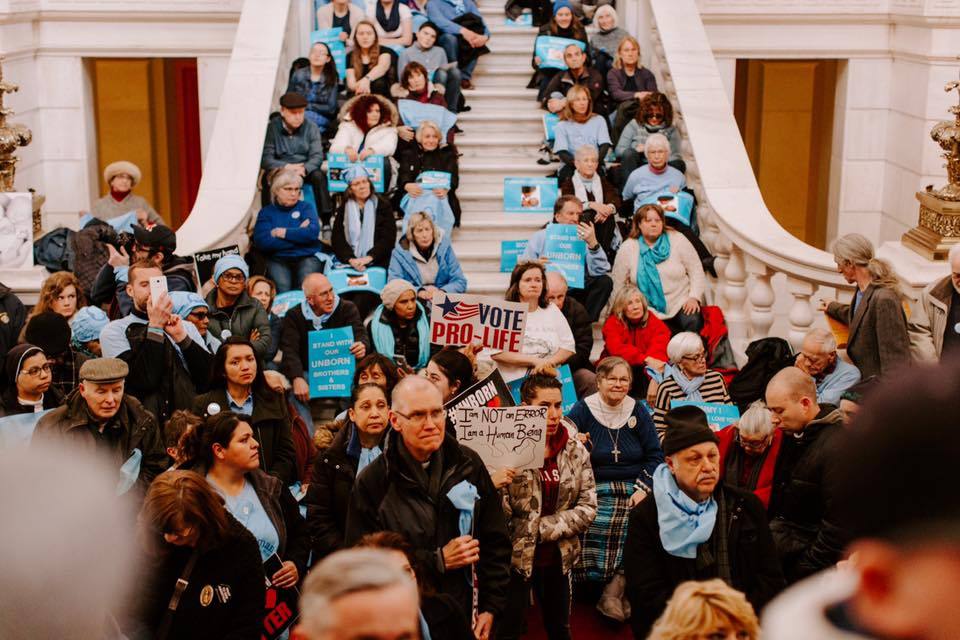How the Reproductive Privacy Act Enables Late-Term Abortion
Abortion supporters in Rhode Island are trying to tell you two stories at the same time. Story number one is that their proposed statutes to legalize abortion “codify” the law as defined by the Supreme Court in 1973. Story number two is that the proposed statutes only allow abortion in cases where a child has reached viability when there a serious medical risk to the mother’s life or health.
Katherine Gregg‘s story posted on the Providence Journal’s website last night shows how the two stories are not compatible and need a little help to appear consistent when told at the same time…
Among the key tenets of [Roe v. Wade], which has guided decades of court decisions since: “For the stage subsequent to viability, the State in promoting its interest in the potentiality of human life may, if it chooses, regulate, and even proscribe, abortion except where it is necessary, in appropriate medical judgment, for the preservation of the life or health of the mother.” The bill headed for a vote in Rhode Island…says much the same thing: “The termination of an individual’s pregnancy after fetal viability is expressly prohibited except when necessary, in the medical judgment of the physician, to preserve the life or health of that individual”…. One of the newcomers — Republican David Place of Burrillville — confirmed he will be voting an adamant “no” against what he considers an “extreme” piece of legislation that goes far beyond the Roe v. Wade ruling with a “health” exception for late-term abortions that, in his mind, is so vague it could mean “mental health.”The problem here is that the idea of mental health as a justification for abortion did not, as the Journal story implies, originate in the mind of Rep. Place; mental health as a justification for abortion originated with the United States Supreme court, in an opinion issued on the same day as the Roe v. Wade decision, in the case of Doe v. Bolton…
We agree with the District Court…that the medical judgment [whether an abortion is necessary] may be exercised in the light of all factors—physical, emotional, psychological, familial, and the woman’s age—relevant to the wellbeing of the patient. All these factors may relate to health. This allows the attending physician the room he needs to make his best medical judgment.So if the legislature desires to turn back the clock on abortion law to January 22, 1973, then the non-specific “health” exception that they are proposing can, in certain cases, allow the killing of a healthy baby when the mother’s life and physical health are not in danger, up until the moment of birth.That is not just David Place’s opinion. It is the Supreme Court’s opinion, and what Rhode Island’s supporters of abortion are attempting to “codify”. That this kind of broad justification for late term abortion is wanted by more than a few Rhode Islanders is not at all clear.




